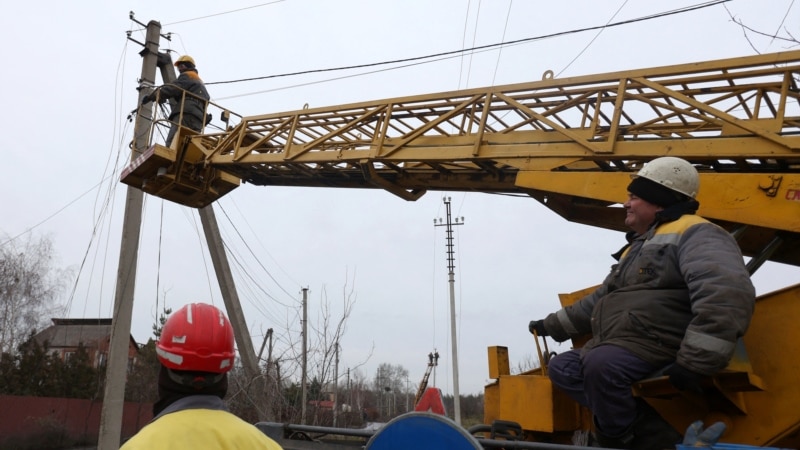
Editor’s note: Here is a fast take on what the international community has been up to this past week, as seen from the United Nations perch.
Russia’s war in Ukraine passes 9-month milestone
Ukrainian President Volodymyr Zelenskyy said Thursday that Russia would not break his country, as nine months have passed since President Vladimir Putin launched an invasion. This week has been particularly bad, as Russia launched scores of missile attacks aimed at taking out the country’s power grid with winter temperatures dropping below freezing. On Wednesday, the Ukrainian president requested an emergency meeting of the U.N. Security Council, which he addressed by video. He urged the council to take “concrete steps to protect humanity and life” by adopting a resolution condemning any forms of “energy terror.”
He also repeated his call for U.N. experts to examine and assess critical infrastructure facilities in his country that have been or may be hit by Russian missiles. “Russia is doing everything to make the electric generator a more powerful and necessary tool than the U.N. Charter,” he said.
Human Rights Council orders investigation into crackdown on Iranian protesters
In a special session on Thursday, the Geneva-based Human Rights Council condemned Iran’s repression of peaceful demonstrators following the death of 22-year-old Mahsa Amini in mid-September and voted to create an international fact-finding mission to investigate the deadly crackdown. The 47-country council voted 25 in favor and 6 against — Armenia, China, Cuba, Eritrea, Pakistan and Venezuela — with 16 abstentions. The U.N. rights office says more than 300 protesters, including at least 40 children, have been killed by security forces since the protests began two months ago. At least 14,000 protesters have been arrested and at least 21 of them face the death penalty.
Security Council urges Yemen’s Houthis to extend truce
Security Council members on Tuesday urged Yemen’s Houthi rebels to renew a truce that expired in October and to engage in substantive talks to end the more than eight-year-old conflict. A two-month-long truce was originally agreed to on April 2 for the Muslim holy month of Ramadan. It led to a drop in civilian casualties and some relief in importing fuel and resuming commercial flights. The parties renewed it twice, but it expired on October 2 and the Iranian-backed Houthi rebels have not agreed to extend it.
In brief
— The International Organization for Migration said Wednesday that more than 50,000 people worldwide have lost their lives during migratory journeys since IOM’s Missing Migrants Project began documenting deaths in 2014. IOM noted the lack of action by governments in countries of origin, transit and destination to address the issue of missing migrants. More than 60% of missing migrants remain unidentified, according to the report. Of those whose nationality could be identified, more than 9,000 were from Africa, over 6,500 were from Asia and another 3,000 were from the Americas. More than half of the deaths occurred on routes to and inside Europe, with Mediterranean routes claiming over 25,000 lives.
— Several U.N. human rights experts said Friday that the Afghan Taliban’s treatment of women and girls may amount to gender persecution, a crime against humanity. Despite pledges to the contrary, the Taliban has increasingly tightened restrictions on females since taking power in August 2021. The de facto authorities have reimposed dress codes, prohibited most women from working outside the home, cut them off from secondary education and, most recently, forbidden them from going to parks and gyms. The U.N. experts, which include several special rapporteurs, said confining women to their homes is ‘tantamount to imprisonment” and is likely leading to more domestic violence and mental health challenges.
— U.S. Ambassador Linda Thomas-Greenfield said Monday that Washington would seek international condemnation of North Korea’s November 18 intercontinental ballistic missile test. The test was Pyongyang’s eighth ICBM launch this year and part of a record 63 ballistic missile launches in 2022. At the U.N. Security Council, Thomas-Greenfield said the U.S. would propose a presidential statement – one step below a council resolution. But such a statement requires all 15 members to agree, and Russia and China signaled they would block such a measure. To date, no statement has been adopted.
— The U.N. said Wednesday that the U.N. coordinator for the Black Sea Grain Initiative, Amir Abdulla, is stepping down from his position for personal reasons. The secretary-general expressed his gratitude for Abdulla’s work. His deputy, Ben Parker, will act as officer in charge for the U.N. at the joint coordination center in Istanbul until the position is filled. Since the initiative was signed in late July, nearly 12 million metric tons of Ukrainian grain and other foodstuffs have been exported from three Ukrainian ports.
— U.N. Special Envoy on Myanmar Noeleen Heyzer said on November 19 that she was encouraged by the announcement of the mass release of detainees in Myanmar. She repeated calls for the immediate release of all children and political prisoners, including President Win Myint and State Counsellor Aung San Suu Kyi. The country’s military junta said it would release nearly 5,800 prisoners to mark national day on November 17.
Quote of Note
“The old methods and the fortress mentality of those who wield power simply don’t work. In fact, they only aggravate the situation. We are now in a full-fledged human rights crisis.”
U.N. High Commissioner for Human Rights Volker Turk at Thursday’s special session on the Iranian government’s crackdown on protesters.
What we are watching next week
Friday marks the International Day for the Elimination for Violence against Women and the start of the 16 Days of Activism Against Gender-Based Violence. Secretary-General Guterres is calling on governments to increase funding to women’s rights groups and organizations.
